The capital and largest city of the Australian island state Tasmania, Hobart is a treat to explore. Nestled at the foot of massive Mount Wellington, it lies in a scenic spot on the banks of the River Derwent and acts as a gateway to the incredible riches and nature of the south of the isle.
It is the second-oldest city in Australia, and was founded as a British penal colony back in 1804. Thanks to its remote location, Hobart still boasts centuries-old colonial buildings with interesting historic tourist attractions, attractive architecture and amazing museums.
Many of the most fun things to do in Hobart can be found around its buzzing waterfront. This is lined by a wealth of excellent seafood restaurants and atmospheric cafes with marinas and markets down by the harbor. With so much going for it, and so many epic outdoor activities to be had nearby, it’s no wonder that Hobart is an increasingly popular destination among both Australian and international tourists.
In this post, we'll cover:
12. Constitution Dock
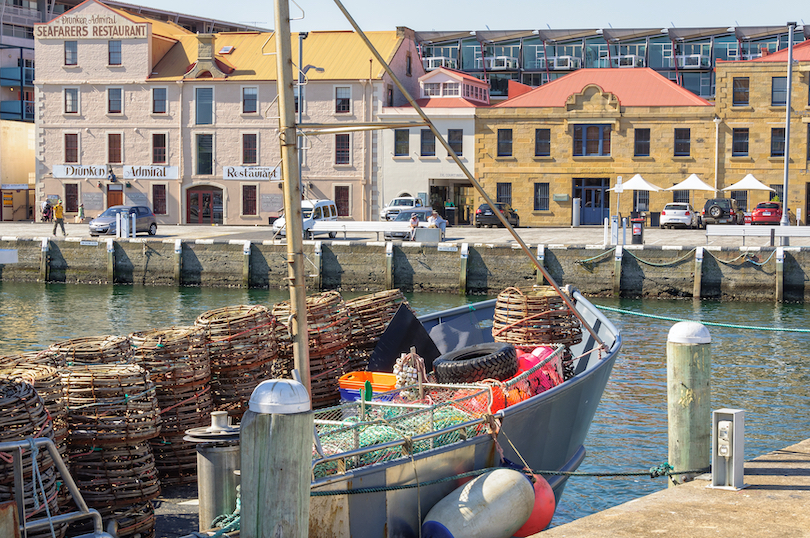
Home to both cozy cafes and superb seafood restaurants, Constitution Dock lies on the city’s waterfront, just a short walk from many of its main sights. Part of Sullivans Cove, it is particularly known for being the rallying point and party venue for the annual Sydney to Hobart Yacht Race.
Bobbing about its stone-walled marina you can see countless sleek yachts and sailing boats, while fishing vessels regularly unload their catch at the northern end of the dock. Besides strolling about, taking in the views and watching all the boats come and go, it is well worth stopping off for a bite to eat at one of its fantastic restaurants.
Mures, for instance, has been serving fabulous fresh fish dishes since 1973 and other eateries have sumptuous fish and chips; you can eat on the go as you explore the area.
11. Tasmanian Museum and Art Gallery
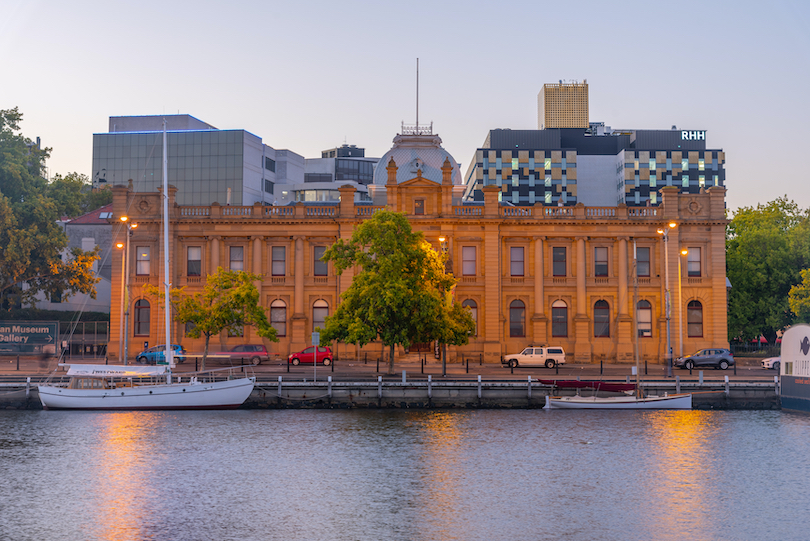
Right next to Constitution Dock is the excellent Tasmanian Museum and Art Gallery that has incredible artifacts, artworks and exhibits to check out. A firm favorite with locals and tourists alike, it offers fascinating insight into the rich history, culture and nature of the region.
The second-oldest museum in Australia, it was established in 1846 with its extensive collection focusing on everything from Aboriginal culture in the area and Antarctic exploration to botany, geology and zoology. Its grand galleries display intricate carvings, fine decorative arts, colonial relics, paintings and photos.
In addition, the campus includes a number of centuries-old heritage buildings, such as the Custom House, Commissariat Store and Private Secretary’s Cottage. With so much to see and do, it really is a must-visit if you want to gain a greater understanding of Tasmania and Hobart’s history.
10. Mawson’s Hut Replica Museum
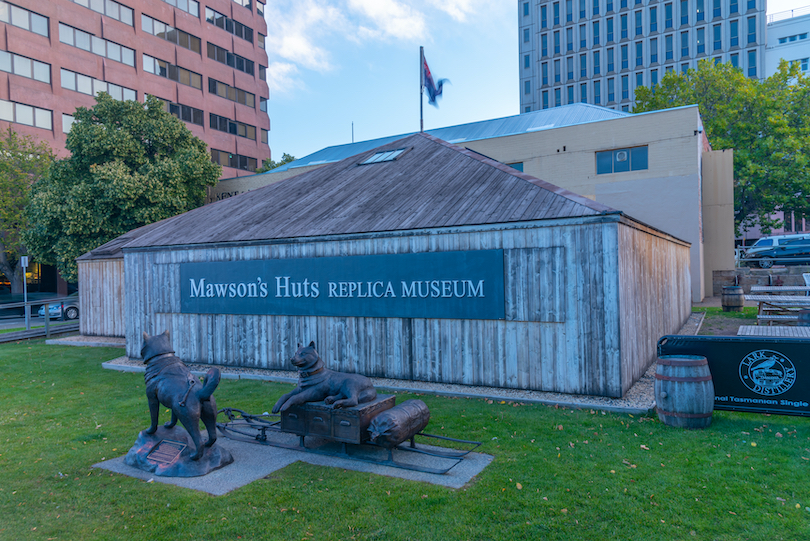
Another of the waterfront area’s enticing attractions is the Mawson’s Hut Replica Museum. An interesting place to visit, its immersive installation transports you back in time to the blistering cold and inhospitable conditions of Commonwealth Bay in Antarctica.
Opened in 2013, the small but splendid museum documents Douglas Mawson’s Australasian Antarctic Expedition of 1911-14. As well as models of the huts they hunkered down in, you can also see artifacts and equipment they used. Exhibitions teach you about their considerable achievements and the innumerable challenges they faced.
Aside from seeing ice axes and sledges, you’ll also hear about the daily life of the explorers on the expedition. All the museum’s proceeds go to the preservation of the actual huts in Antarctica.
9. Cascade Brewery
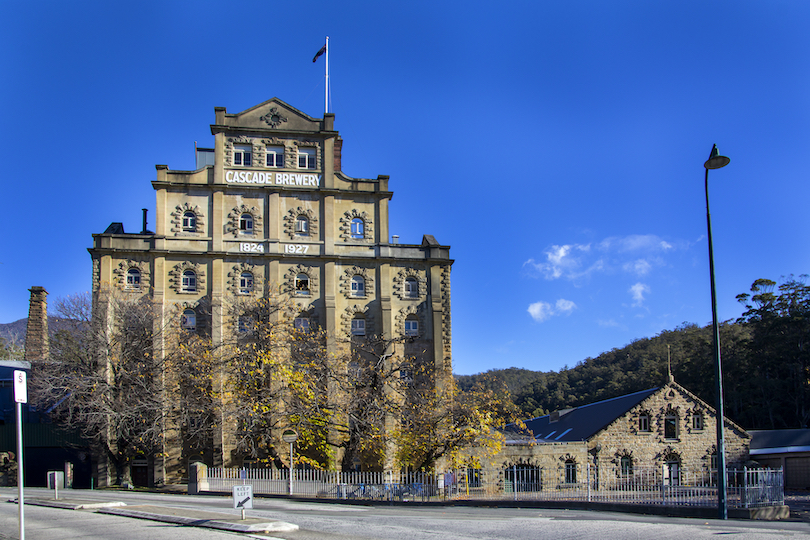
Offering an enthralling look at another part of Australia and Hobart’s history entirely, is the Cascade Brewery, which lies just five minutes’ drive southwest of the center on the outskirts of town. Set in a scenic yet secluded spot, it has tours and tastings for visitors to enjoy with Mount Wellington rising dramatically in the distance.
The oldest continuously operating brewery in the country, it was founded in 1824 and still produces award-winning ales, stouts and bitters to this day. On tours of the pretty property you’ll learn about the brewing and bottling process and the rich history of the brewery. Then you can sample some of its signature beers, such as Cascade Pale Ale and Cascade Premium Light.
Just as striking as the bubbly beers themselves, is the brewery’s grand Gothic facade that looks out over its gorgeous gardens. A restaurant and bar are also located on the premises.
8. Mount Nelson
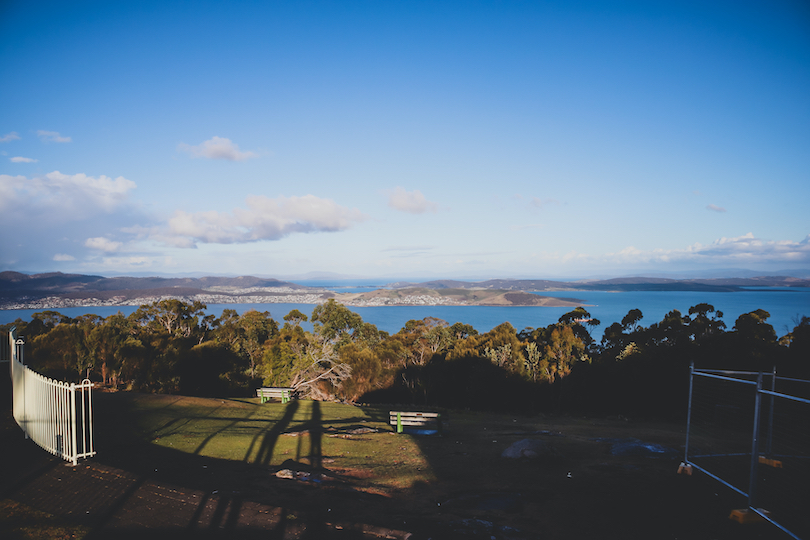
Directly south of the city centre is 352 meter-high Mount Nelson, which boasts some of the best views over both Hobart and the River Derwent. Although its lookout is often overlooked in favor of Mount Wellington, the smaller mount is well worth visiting. It also has idyllic nature spots and a colonial-era signal station for you to check out.
In less than ten minutes’ drive you can find yourself atop the mount gazing out over both the city and river, with the Tasman Bridge and Bruny Island also visible from its summit. As well as a restaurant and picnic area, there is the atmospheric old signal station that was built back in 1811.
Next to the lookout is the Truganini Conservation Area that has beautiful bushland to explore and contains a moving memorial to the Tasmanian Aboriginal people and their descendants.
7. Battery Point
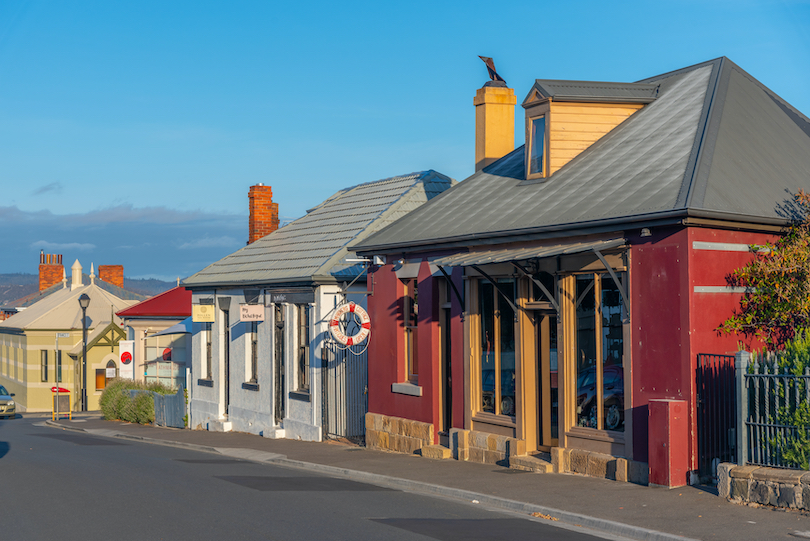
A real treat to explore, the small maritime village of Battery Point, and its winding lanes and cute cottages, is just fifteen minutes’ walk from the center. Set to the south of bustling Salamanca Market, it is one of the most historic neighborhoods in the city.
Originally established in 1818, it is named after the battery of guns that were erected on the point as part of Hobart’s coastal defenses. Once a sleepy fishing village, it is now one of the most affluent suburbs in town. Magnificent mansions and arresting architectural gems sit next to cozy cafes, charming cottages and a wealth of antique shops and bookstores.
Aside from strolling about and enjoying the historic atmosphere, you can also visit the centuries-old St. George’s Anglican Church or venture off along the Battery Point Sculpture Trail.
6. Royal Tasmanian Botanical Gardens
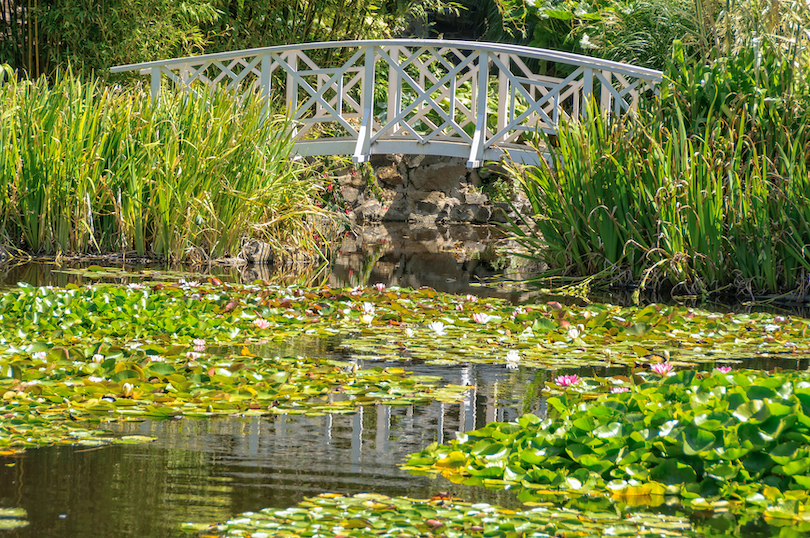
The Royal Tasmanian Botanical Gardens are home to an astonishing array of flowers and plants from all around Australia and further afield. Part of Queen’s Domain park, its gorgeous grounds and gardens are next to Tasman Bridge, just a short drive north of Hobart.
The second-oldest botanical gardens in the nation, it was first founded in 1818 and now boasts over 6,000 species of exotic and native plants. While wandering around its sprawling site you’ll come across ponds, colorful flower beds, serene Chinese and Japanese gardens, prickly cacti collections and a fabulous floral clock.
The undoubted highlight, however, is its Subantarctic Plant House which displays the unique flora of the Southern Ocean islands in a chilly and climatically-controlled environment.
5. Bonorong Wildlife Sanctuary
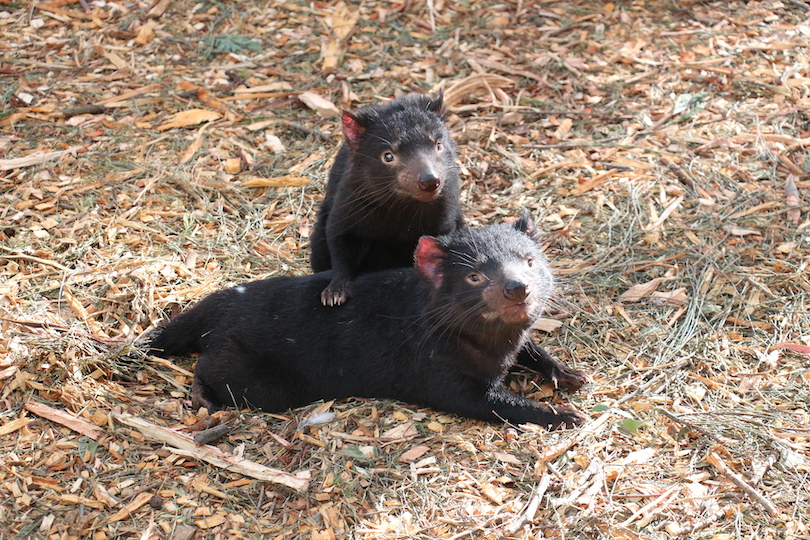
Half an hour’s drive north of Hobart you’ll find the outstanding Bonorong Wildlife Sanctuary; one of the best places to view Australian animals in Tasmania. Located on the outskirts of Brighton, it is sure to delight the family with its amazing educational exhibits and cute Ozzie critters.
Established in 1981 to care for injured and orphaned wildlife, the sanctuary has grown and now covers a huge site. In expansive outdoor enclosures that replicate their natural habitat you can see koalas, kangaroos, emus, wombats and Tasmanian devils happily ambling about.
Besides learning all there is to know about the animals, their environment and behavior, you can also meet and stroke sugar gliders and echidnas on one of the sanctuary’s unforgettable animal encounters.
4. Cascades Female Factory
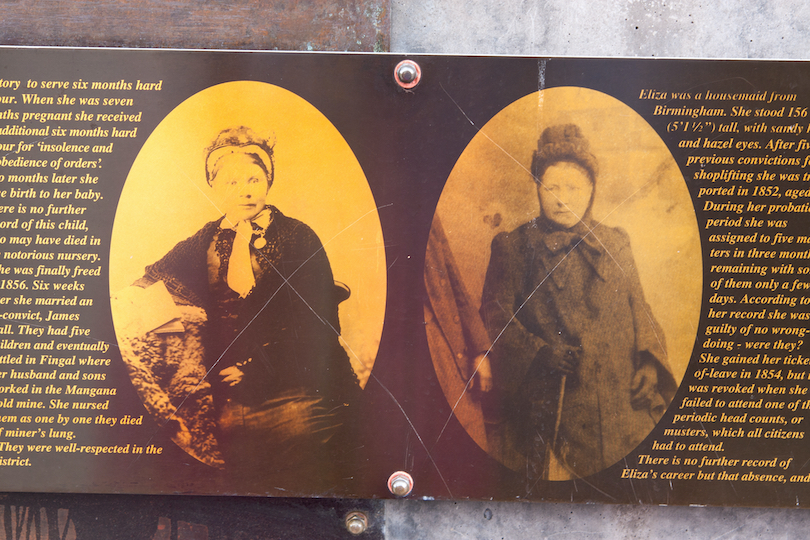
Protected as a historic site, the Cascades Female Factory is a fascinating place to explore as it shines a light on part of the former penal colony’s past. Situated five minutes’ drive southwest of the center, its interpretative installations and exhibits offer an interesting look into the lives and living conditions of female convicts.
In use between 1828 and 1856, it was here at the remote and imposing workhouse that offending women were sent for both punishment and reform. On tours around its old brick buildings, and stark and exposed yards, you can learn about the former residents and the work they did as either cooks, hospital attendants or washerwomen.
As it is the only facility of its kind still remaining in the country, the factory presents an invaluable example of Australia’s convict heritage and how forced migration led to the founding of the nation.
3. Mount Wellington
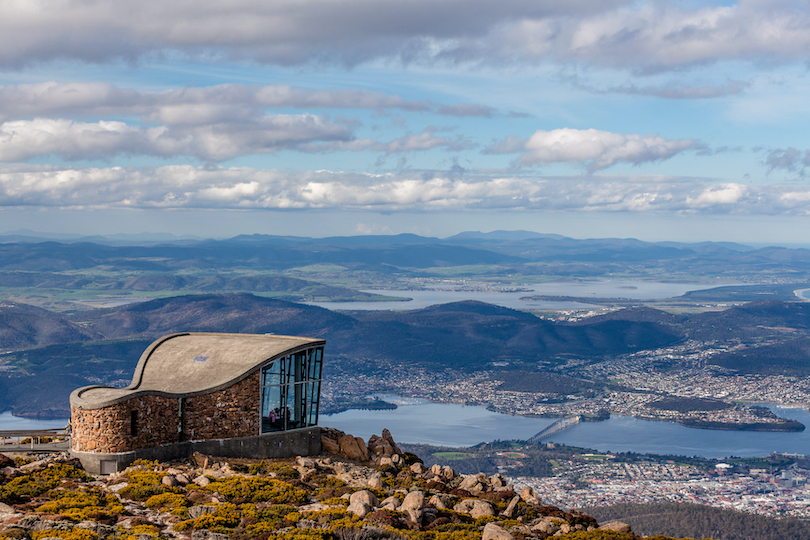
Dominating the city’s skyline is majestic Mount Wellington, which is visible from wherever you are in town. In just twenty minutes’ you can drive to the top of its soaring summit which boasts breathtaking views and an array of outdoor activities.
Also known as “kunanyi” in the local Aboriginal language, it reaches 1,271 meters with its prominent peak often covered in snow, even in the summer. While its upper reaches are quite bare and rocky, its lower slopes are home to lush forests and flower-filled meadows, with fantastic hiking and mountain biking trails weaving their way amidst the wilderness.
From its lofty summit you can bask in panoramas of the city and its surroundings; even the Pacific Ocean can be spied off in the distance on clear days.
2. Salamanca Market
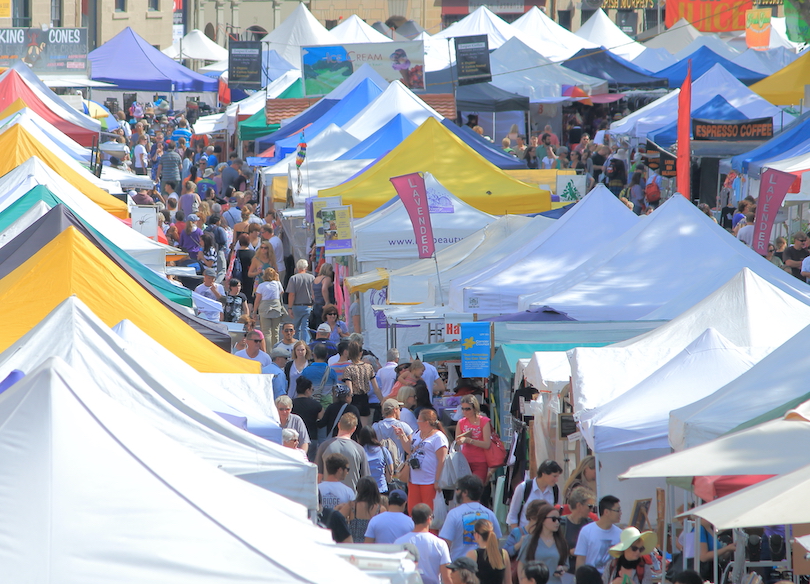
Lively Salamanca Market has long been one of Hobart’s most popular draws. Held every Saturday between 8.30 AM and 15.00 PM, it has hundreds of stands and stalls to peruse that seemingly sell everything under the sun.
Founded in 1972, it’s a firm favorite with locals and tourists alike with the sprawling market now occupying all of Salamanca Place next to Hobart’s waterfront. You can find everything from delicious artisan cheeses and freshly baked goods to fresh fruit and vegetables, with other stands selling local handicrafts and jewellery.
In total, more than 300 vendors now flock to the market each Saturday morning to hawk their wares with coffee stands and food stalls also dotted here and there. Due to its lively ambience and wealth of things to buy and eat, the market is arguably the most popular tourist attraction in Tasmania.
1. Museum of New and Old Art (MONA)
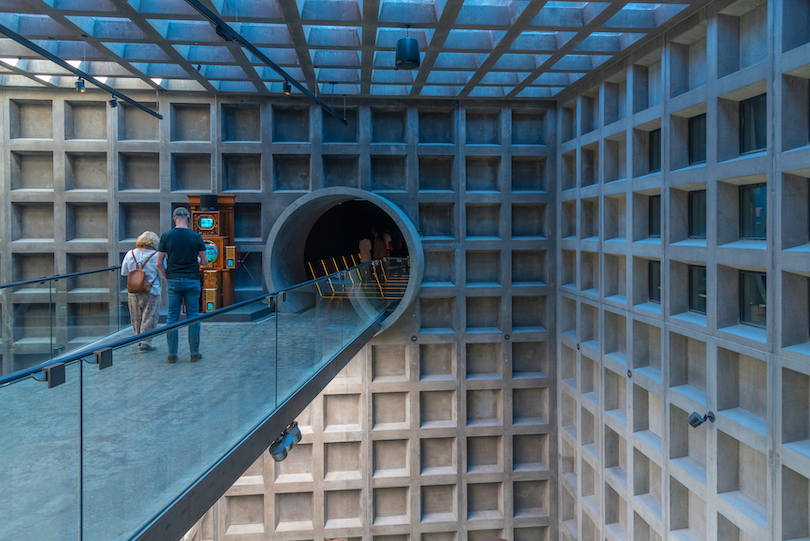
The utterly unique and engrossing Museum of New and Old Art is definitely not to be missed when in town. Described as a ‘subversive adult Disneyland’, its thought-provoking, and downright provocative, artworks focus on everything from sex and death to sarcophagi, space and sound installations.
First opened to the public in 2011, its architecturally interesting building lies on the banks of the River Derwent, fifteen minutes’ drive north of the center. While it appears to only have one floor, three further levels have been carved into the ground. The lack of windows and labyrinth of tunnels and galleries lend it a deliberately ominous air.
In total, there are more than 1,900 artworks to experience that range from the remarkable to the ridiculous. Contemporary pieces are on show next to ancient antiquities and amazing Egyptian mummies. If eccentric multimillionaire owner David Walsh’s captivating collection doesn’t appeal, then you can always venture outside and enjoy the pristine nature that lies all around the museum.
Best Time to Visit Hobart
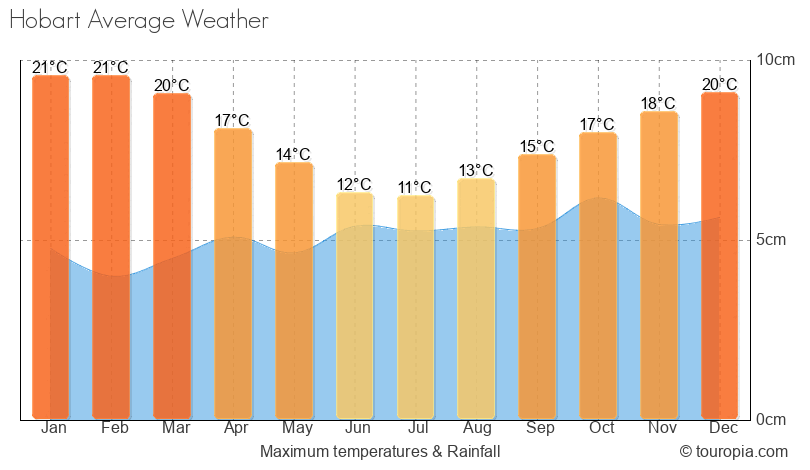
As the warmer summer months are best for enjoying outdoor activities, most people visit Hobart between December and February. Besides being drier, average temperatures of 18 to 20°C (64 to 68°F) are great for ambling around its CBD or nearby national parks.
Prices are of course higher during this period as people pour in for the holidays. Other than Taste of Tasmania and MONA FOMA, you can watch the exciting finale of the Sydney Hobart Yacht Race at its harbor which also has an amazing fireworks display for New Year’s.
While temperatures are cooler, the autumn months of March to May are still very pleasant in Hobart. The glittering golden colors of its trees makes hiking in the forest magical with harvest season also being the best time to tour wineries.
After Easter, the number of tourists visiting starts to fall as the cold and rain of winter kicks in. With averages of 9 to 12°C (48 to 53°F), May through August is very quiet though its Dark Mofo festival does attract large crowds.
Once the weather warms up again, the spring months of September to November welcome way more visitors to Hobart. With everything blossoming, the city looks incredible and you can even see migrating whales along the coast.

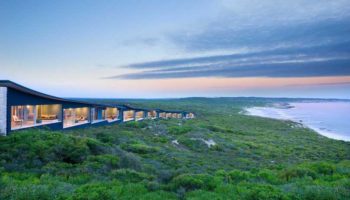
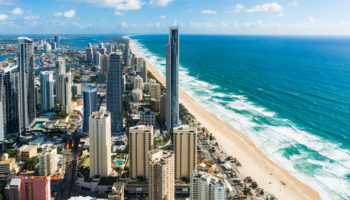
Leave a Reply